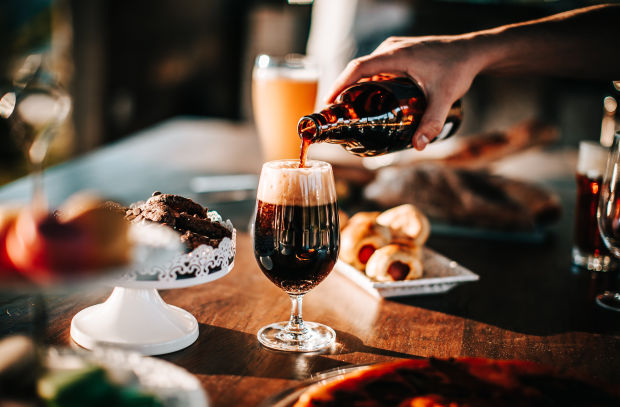
TeePartialism: How Flex Lifestyles Are Changing Attitudes to Drinking

The alcohol industry is undergoing major structural change. As a nation, we are drinking less overall, though our consumption is more likely than before to be concentrated into less frequent but higher volume “binges”. We’re also drinking more wines and spirits, trading up on quality and more likely to drink with food or at home, rather than in drink-only pub sessions.
Teetotalism has been rising over recent years - according to research from Walnut, 25% of 18- to 24-year-olds are now teetotal. As a result of this trend there have been two main responses from the drinks industry: to improve the quality and availability of no/low-alcohol options, and to create a more diverse, challenging and interesting set of soft drinks options so that they can give non-drinkers a true choice.
Heineken’s recently launched 'Say Yes' campaign is proof that the industry’s big guns are starting to recognise the need for low-alcohol and no-alcohol options and react to it. According to Marketing Week, the ‘no and low’ category is growing fast and is currently worth £42.5m, up 29% annually, according to CGA, a research consultancy focused on the drinks market and Heineken is hoping that its ‘Say Yes’ campaign, which spans Heineken 0.0, Birra Moretti Zero, and Old Mout Alcohol-free, will raise awareness, change perceptions and kick-start even greater category growth.
However, teetotalism is just one (extreme) end of a spectrum that now includes a range of much more nuanced and situational behaviours to drinking.
Roughly twice as many (48% according to Walnut) are either low frequency/volume drinkers and/or are trying to cut down, as are fully teetotal and it is here, in the middle ground, where we expect the most significant growth over the next few years to be.
We can call this TeePartialism, since it contrasts directly with all-or-nothing approaches like teetotalism. TeePartialism is about finding strategies to reduce the volume and/or the frequency of alcohol consumption. It is about having the confidence to say no to alcohol but also the belief that one can find non-alcoholic alternatives that serve the needs of the moment just as well as alcoholic ones.
Teepartial drinkers live in the present not in the past. For them old-style default settings, assumptions, social norms or traditions don’t matter one bit. Whereas in the past the pathway or character of an evening out was fairly predictable and unvarying from occasion to occasion, in future revellers will be far more careful, deliberate and situational in their choices. Sometimes their choices will include alcohol, sometimes they won’t. Instead, they’ll be resistant to peer pressure, unconcerned with social norms and deaf to the dictates of tradition or convention. They’ll assess each situation, each evening out with friends, each post-work huddle and each family gathering on its own merits, factoring in how they feel, who they are with and what drinks are available.
Another reason for believing that this change in drinking behaviour is here to stay is that it mirrors changes that we are seeing in the rest of society – today’s consumers do not wish to be pigeon-holed and want the ability to flex their lifestyles and their choices. Think of food: far more people are reacting to sustainability and health concerns by adopting a flexitarian lifestyle than are going “full-vegan”. Think of purchasing and ownership: there is a noticeable rise in preferences for subscription-free or subscription-light models of access – pay as you go gym memberships for example – as consumers become more and more commitment-phobic. Seen in this light, the movement to a more considered approach to drinking habits makes perfect sense.
TeePartial future will see an increasingly diverse set of both alcohol-based and low/no alcohol choices live side by side and the lines between different categories of beverage and occasion will blur. Alcohol manufacturers and retailer’s ability to cope in this new, more challenging environment will be a key factor in whether they thrive and survive.
Want to understand more about TeePartial and the future of the alcohol industry? Download a copy Unlimited Group’s report, Going TeePartial, to get further insights and trends.
Nick Chiarelli is head of trends at Unlimited Group UK.













